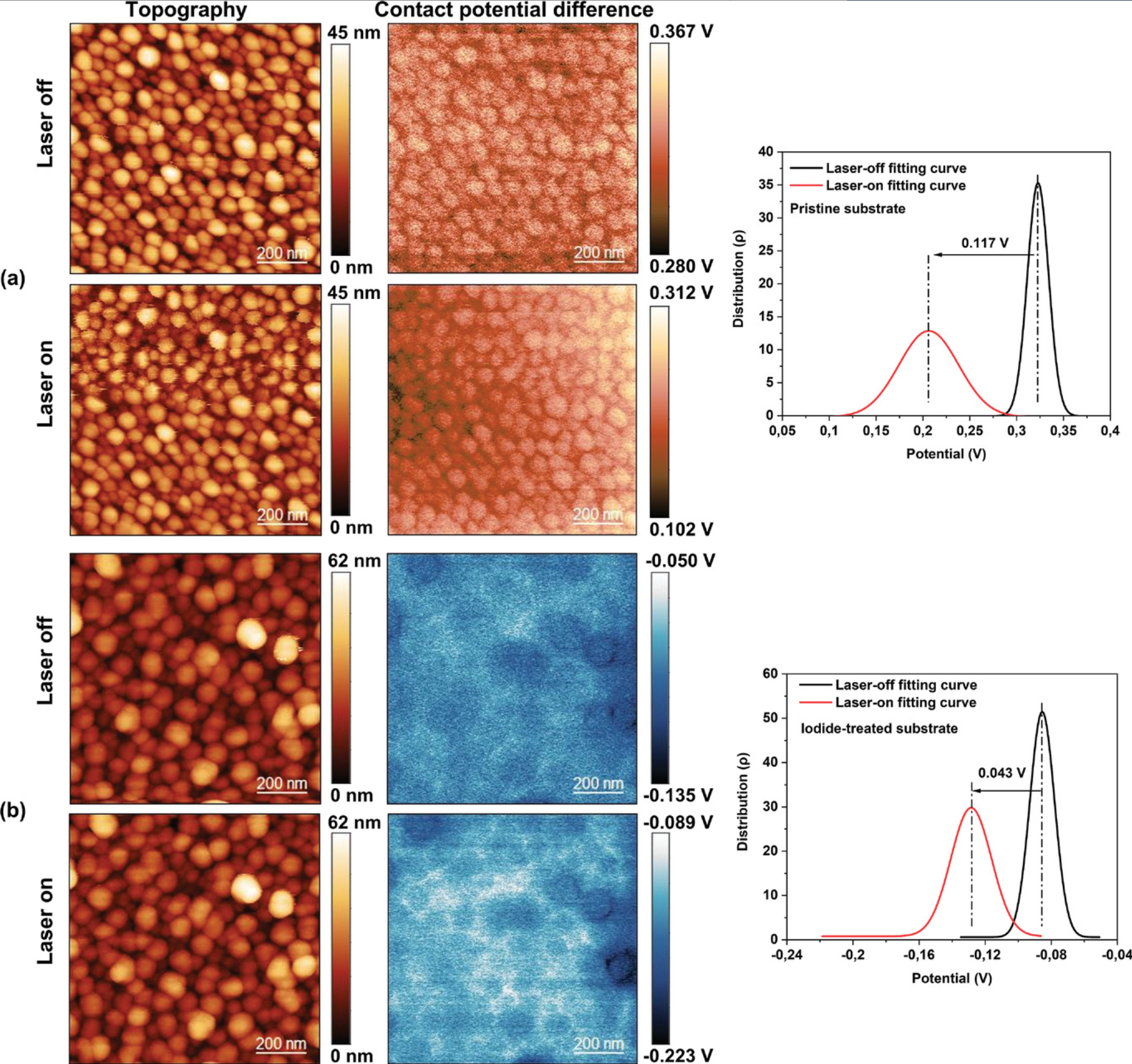- Home
- Research
- Nanoscopy
- Research results
- Targeted Suppression of Peptide Degradation in Ag-Based Surface-Enhanced Raman Spectra by Depletion of Hot Carriers
Targeted Suppression of Peptide Degradation in Ag-Based Surface-Enhanced Raman Spectra by Depletion of Hot Carriers

11.09.2023
This paper introduces an efficient suppression method of peptide degradation using iodide demonstrated by a systematic surface-enhanced Raman spectroscopy (SERS) study of a small peptide in aqueous solution. Remarkably, a distinct charge separation-induced surface potential difference is observed for SERS substrates under laserirradiation using Kelvin probe force microscopy. This directly unveils the plasmon-induced catalytic effect of Ag-SERS substrates. Based on the presented results, it is proposed that plasmon-induced catalysis dominates peptide degradation in SERS experiments in liquid and the suppression of typical SERS sample degradation by iodide is discussed by means of the energy levels of the substrate under mild irradiation conditions.
Biophotonics is a key research field at Leibniz IPHT and SERS is an indispensable and critical technique for fast and reliable analysis. So far, sample degradation significantly limits the application of SERS in bio-applications. The surface potential motivated suppression of peptide degradation using iodide ions of the current study, consequently, is expected to have a major impact on SERS-studies at Leibniz IPHT and in general towards more reliable and reproducible SERS experiments of biomolecules under physiological conditions.
